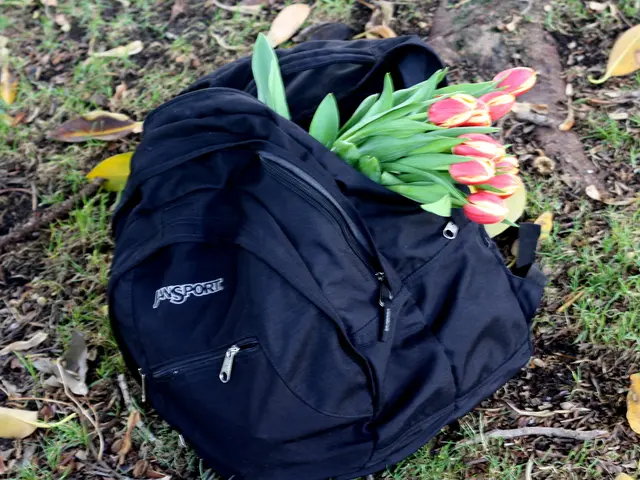Stewarding Edibles: Sustainable Food Management
In the ever-evolving quest for a more sustainable future, one issue that stands out as a significant opportunity for change is food waste. According to the latest EPA report and related resources, reducing food waste can bring about substantial benefits for both families and the environment.
For families, minimizing food waste translates into savings. On average, Americans discard around $800 annually on uneaten food, a figure that can put a strain on household budgets, especially in the face of rising food prices. By adopting strategies to reduce waste and improve food purchasing efficiency, families can stretch their food budgets further, making a tangible difference to their financial well-being.
From an environmental perspective, reducing food waste is a crucial step towards mitigating climate change. Food waste in landfills generates methane, a potent greenhouse gas, contributing significantly to global warming. By diverting food waste through methods such as composting, feeding animals, and anaerobic digestion, we can cut carbon emissions from agriculture by approximately 10% in the U.S., according to the EPA.
Preventing food waste, donating surplus food, and upcycling are more effective in reducing environmental impact than traditional methods like landfilling, incinerating, or disposing of food waste down the drain. These practices align with policy frameworks promoting zero waste hierarchies and circularity, aiming for carbon neutrality and higher recycling rates by 2030 and 2050 targets respectively.
Community and governmental programs, like Michigan’s NextCycle Accelerator, demonstrate how food waste reduction projects can advance climate goals while fostering local economic and environmental benefits.
In summary, the benefits of reducing food waste include:
- Cost savings for families through less wasted food and better food purchasing efficiency.
- Significant reductions in greenhouse gas emissions, contributing to climate change mitigation.
- Improved environmental health via composting and sustainable waste management practices advocated by the EPA.
- Support for policy goals in carbon neutrality and circular economy efforts, linking community actions to broader climate initiatives.
Businesses and organizations also have a crucial role to play in this endeavour. They can join the Food Loss and Waste 2030 Champions, a global initiative that aims to halve food waste and waste associated with food loss by 2030. Additionally, regional opportunities for preventing and diverting wasted food, initiatives, and resources exist.
The EPA's "In the Loop with EPA: Circular Economy Updates" newsletter shares announcements and funding opportunities related to food waste reduction and other circular economy initiatives. For those interested in learning more about food waste, resources such as the "Food: Too Good to Waste Toolkit and Guide" and the Social Marketing Toolkit for composting food scraps in the community are available.
Community composting, educating youth about wasted food, and donating food are other options for individuals and communities to contribute to this cause. By working together, we can make a tangible difference in reducing food waste, saving money, and protecting our environment.
[1] Natural Resources Defense Council. (2020). The Dirty Dozen: Food Waste and Climate Change. Retrieved from https://www.nrdc.org/sites/default/files/202011_nrdc_dirty_dozen_food_waste_and_climate_change.pdf
[2] United States Environmental Protection Agency. (2020). Advancing Sustainable Materials Management: 2018 Fact Sheet. Retrieved from https://www.epa.gov/sites/default/files/2020-08/2018_fs_smm_final.pdf
[3] United States Environmental Protection Agency. (2018). Food: Too Good To Waste. Retrieved from https://www.epa.gov/sustainable-management-food/food-too-good-waste
[4] Michigan NextCycle Accelerator. (2021). Michigan's NextCycle Accelerator. Retrieved from https://www.nextcyclemi.com/
- In the realm of environmental science, trimming food waste becomes a significant aspect of sustainable living, contributing to personal growth as well as the goal of mitigating climate-change.
- By adopting sustainable habits such as budgeting, healthy-cooking, and the practice of reducing waste in food-and-drink, individuals can help alleviate the burden of waste on the environment and personal-finance.
- The education-and-self-development sector offers resources like the Food: Too Good to Waste Toolkit and Guide, bolstering knowledge about food waste and facilitating a more sustainable lifestyle.
- The Earth day Network's Food Loss and Waste 2030 Champions initiative invites businesses and organizations to partake in a global effort to slash food waste by half by the year 2030.
- In the home-and-garden space, community composting programs offer a tangible way for neighborhoods to address local food waste, while fostering closer relationships and promoting healthy living.
- In connection to the environmental benefits of food waste diversion, educating youth about food waste through environmental-science curricula enables them to acquire knowledge and skills that will foster a more sustainable future.
- Local programs and initiatives, such as Michigan's NextCycle Accelerator, demonstrate how food waste reduction projects can lead to economic growth, environmental betterment, and the reduction of greenhouse gas emissions.
- Policymakers and community leaders can support sustainable living practices by adopting policy frameworks that advocate zero waste hierarchies, aiming for carbon neutrality and higher recycling rates by the 2030 and 2050 targets respectively.
- Resources like the Social Marketing Toolkit for composting food scraps in the community and the report "The Dirty Dozen: Food Waste and Climate Change" provide valuable insights on food waste reduction and offer strategies for both individuals and organizations to make a positive impact in reducing waste and protecting the environment.




